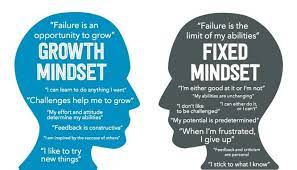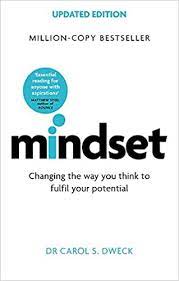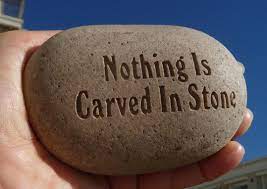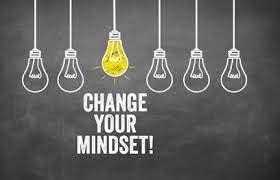Growth Mindset: Do you have it?
I’ve had the book ”Mindset” on my book shelf for a few years but I hadn’t got to it until now.
For those of you who know me, it might not come as a surprise to you that I’m passionate about Psychology.
A couple of books that I keep coming back to are:
- The Chimp Paradox – Dr Steve Peters
- The 5AM Club – Robin Shaarma
- The Power of Now- Eckhart Tolle
- The Motivation Manifesto – Brendon Burchard
I think I’ll be adding ”Mindset” by Carol Dweck to my go to list.
The Brain
For simplicity, we like to compartmentalize the brain into the ‘Ego’ and the ‘Human.’ In Carol’s book she never refers to the brain in this way, but rather refers to two different mindsets, ‘Growth’ and ‘Fixed.’ So I wouldn’t want to misunderstand her and go as far as to say that your Ego is your fixed mindset and the Human is the growth mindset, because this is neither implied or specifically stated.
I’d encourage you to do your own reading but if we do use these terms interchangeably we might find it helpful to compare the EGO DRIVES (Fixed) versus HUMAN DRIVES (Growth).
EGO DRIVES
- Feel safe
- Feel accepted
- Feel comfortable (convenient)
HUMAN DRIVES
- Personal freedom and independence
- Self-direction
- Growth (our potential, our highest self)
Your Ego is about our survival instincts, looking for threats and signs of danger, and taking every opportunity to keep us safe and secure. In the modern world this can be seen as ‘rationalising’ when we justify inaction or poor performance with excuses to ‘protect ourselves,’ from reality. Some of that security could come from the perception of having an ability in something that is seen as desirable by others (acceptance).
Carol describes a Fixed mindset as ”a belief in an ability or quality that cannot be increased, it’s a fixed prior ability.” (Nature).
Growth mindset ‘is a belief in the capacity for lifelong learning and brain development, and can be increased with purposeful engagement.” (Nurture).
People may start with different temperaments and different aptitudes, but it is clear that experience, training and personal effort take them the rest of the way.
The view you adopt for yourself profoundly affects the way you lead your life.
Believing that your qualities are carved in stone – the fixed mindset – creates an urgency to prove yourself over and over. If you have only a certain amount of intelligence, a certain personality, and a certain moral character – well, then you’d better prove that you have a healthy dose of them. It simply wouldn’t do to look or feel deficient in these most basic qualities. Every situation calls for a confirmation of their intelligence, personality or character.
But with the Growth Mindset- the hand you’re dealt is just the starting point for development. This growth mindset is based on the belief that your basic qualities are things you can cultivate through your efforts, your strategies and help from others.
How Do We Develop a Fixed Mindset?
When people hold onto a fixed mindset, it is often for a reason. At some point in their lives it served a good purpose for them.
The idea that they are worthy and will be loved is crucial for children, and – if a child is unsure about being valued or being loved- the fixed mindset appears to offer a simple, straightforward route to it.
When young children feel insecure about being accepted by their parents it causes them great anxiety. They feel lost and alone in a complicated world. Since they are a only a few years old, they cannot simply reject their parents and say, ”I think I’ll go it alone.” They have to find a way to feel safe and to win their parents over.
Children do this by creating or imagining other ”selves.” ones that their parents might like better. These new selves are what they think their parents are looking for and what may win them their parents’ acceptance.
The Problem with the Fixed Mindset
The problem is that this new self – this all-competent, strong, good self that they now try to be – is likely to be a fixed mindset self. Over time, the fixed traits may come to be the person’s sense of who they are, and validating these traits may come to be the main source of their self-esteem.
What’s the Solution?
Mindset changes asks people to give this up. It’s not easy to replace your fixed mindset with a mindset that tells you to embrace all the things that have felt threatening: challenge, struggle, criticism, setbacks.
There’s the concern you won’t be yourself anymore. It my feel as though the fixed mindset gave you the ambition, your edge, your individuality. Maybe you fear you’ll become a bland cog in the wheel like everyone else. Ordinary.
But opening yourself up to growth makes you MORE yourself, not less.
Confidence & Expectations
When I took my qualification with the Academy of Peak Performance to become a Certified Peak Performance Coach I learnt about expectations and confidence.
If someone has high expectations about their performance, you will likely hear them say things like ”I should have” e.g. I should beat this person, I should of passed that test. There is a difference between wanting something to happen and expecting it to- it’s okay to want to win, but it’s more important to be able to deal with the fact that it might not happen.
If a person has an expectation and they fail to achieve the standard, they are likely to feel a negative emotional state (disappointment, frustration etc).
Negative emotional states will negatively impact performance, e.g., through poor concentration and increase in muscle tension. Performing without expectations relies on the person not assigning a JUDGEMENT to the performance (it was good or bad). By not assigning a judgment to the performance a negative emotion can be avoided.
Not having expectations does NOT mean that you don’t care, nor does it mean you are not trying. It keeps you focused on the present. It also helps with maintaining confidence as you are not beating yourself up for messing up, or not achieving something.
Now there are some aspects of performance where you can have expectations of yourself based on non negotiable aspects of performance such as being respectful to opponents, arriving on time, giving high effort. But having high expectation of the performance OUTCOME is an unrealistic expectation.
As humans we aren’t designed to perform high level sports under pressure. Under pressure a natural response for a human is for us to:
- narrow our attention on danger
- higher tension / less movement
- increased heart rate
So don’t judge or beat yourself up when you respond in a ”normal” way….that’s the way we are made!
And on the flip side be really proud of yourself when you respond in an ”extraordinary” or more effective way. It’s a very satisfying feeling to feel the fear and do it any way.
Any performance objectives need to be tough enough to challenge the person but not too tough to depress their motivation. Emphasis on winning is okay when that is the objective, but if it is the focus of every session it can influence learning and motivation.
In terms of confidence, you should practice in a way that engenders confidence in the person. A definition of self-confidence is how strongly you believe in your ability to do something. The person needs to focus on (remember) good performances. Some people allow the perceptions (and even their thoughts of how others think of them) to influence their confidence. This is not helpful and they need to learn to make their own judgments about their ability and let go of unhelpful comments from significant others.
The following undermine confidence:
- Doubts
- Indecision
- Lack of trust
- Fear of failure
- Impatience
- Expectations
- Frustrations and other negative emotions
- Negative self talk
- Personalising faults
We often hear coaches talk about the power of positive thinking. POSITIVE THINKING is different from expectations!
Be positive in your ability, learn from mistakes and other opportunities that present themselves and don’t expect or be critical = higher self confidence.
On a final note, the person is not their performance – if self esteem shifts up with success and down with failure this is unhealthy and undermines more than just self confidence.
 TRAIN WITH APA
TRAIN WITH APA 
Aspiring Pro Training Support Packages
Follow me on instagram @apacoachdaz
- If you’re not subscribed yet, click here to get free email updates, so we can stay in touch.
- Share this post using the buttons on the top and bottom of the post. As one of this blog’s first readers, I’m not just hoping you’ll tell your friends about it. I’m counting on it.
- Leave a comment, telling me where you’re struggling and how I can help
Since you’re here…
…we have a small favor to ask. APA aim to bring you compelling content from the world of sports science and coaching. We are devoted to making athletes fitter, faster and stronger so they can excel in sport. Please take a moment to share the articles on social media, engage the authors with questions and comments below, and link to articles when appropriate if you have a blog or participate on forums of related topics. — APA TEAM







